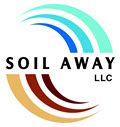
Addressing Water Damage in Household Appliances
An often-overlooked concern after a flood in a home is water damage to the household’s appliances. Even after the water has been removed and the area dried out, there may be lurking damage to an appliance’s electrical system. Turning on a water damaged appliance can create serious safety concerns, as it can short-circuit and shock those nearby.
When a Flood Occurs Immediately Shut Power to Household Appliances
Household appliances affected by water damage that are connected to a power source can pose a significant risk to anyone nearby. This is particularly true if there is any amount of standing water around the appliance. Water can damage an appliance’s electrical panel and controls. With electricity still connecting to a damaged device, the risk of a fire or a powerful shock is present. For someone standing in water near the appliance, this is an even greater likelihood. Shutting the power to the appliances from the breaker box is advised. It may also help to unplug and remove the affected appliance from the flooded area.
A Professional Can Evaluate Appliances for Damage
Unfortunately, much of the damage associated with appliances after a flood is not visible from the outside. Water penetrating the electronics and circuits can leave lasting damage. For this reason, it is important that a professional evaluate any appliances that may have been damaged by a flood. This should be done prior to turning on or plugging in the appliance.
A restoration team can not only have the electronics examined for damage, but they can also thoroughly clean the appliance. In some flooding, the water can contain bacteria. If left untreated these bacteria can grow, continuing to damage the appliance long after the flood. A restoration team like Soil-Away can evaluate the appliance’s internal components, inspecting any wiring, motors and compressors for damage. They can then sanitize the appliance to eliminate any bacteria left behind. If the appliance is non-salvageable, the restoration company can safely remove and dispose of it.
Appliances Can Be Susceptible to Mold
If a refrigerator or freezer was penetrated by the flood and the insulation became wet, you may be at risk for these appliances developing mold. Typically, these appliances can withstand higher flood levels because of their sealed bottom. However, you will still want to have these appliances inspected professionally after a flood.
The restoration professionals at Soil-Away are on call 24/7 to help after a flood damages your home. The team can evaluate your household appliances to determine the best course of action. Contact Soil-Away at 603-641-6555.

